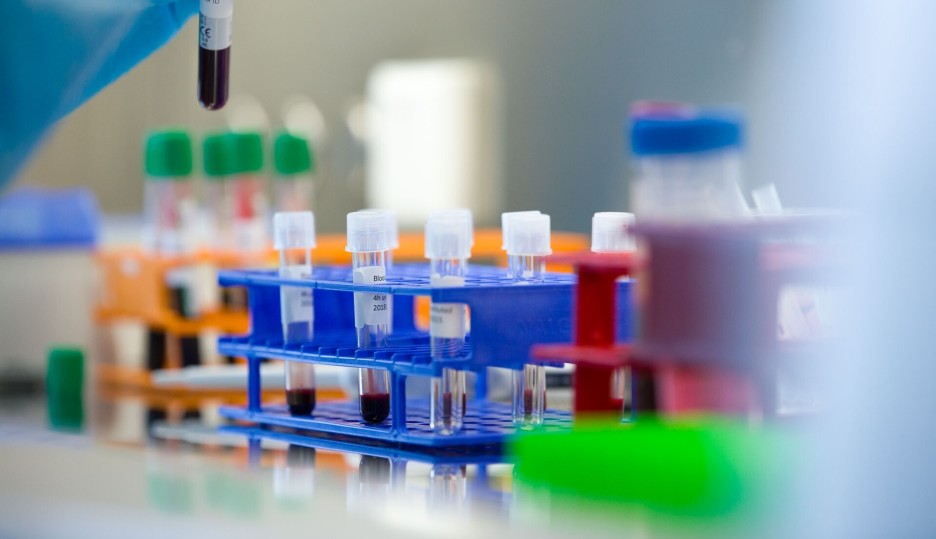Solutions and capabilities
Assessing the immunomodulatory or anti-inflammatory activity of new drugs in early development is challenging, typically only measurable in phase 2 trials. CHDR bridges this gap by offering in vitro, ex vivo and in vivo inflammatory challenges, such as an LPS, KLH or imiquimod challenge, enabling early evaluation of immune-modulating effects. These methods allow us to induce inflammatory responses in cultures of whole blood or isolated immune cells, or in vivo in healthy volunteers to assess potential therapeutic efficacy early in development.
Operating in a GCP- and GCLP-compliant environment, we combine state-of-the-art assays, performed in-house or with trusted partner labs, ensuring the highest quality standards. Our partnerships with leading Dutch academic medical centres provide access to key opinion leaders and specialised patient populations. We also collaborate with experts in PK/PD modelling and systems pharmacology to offer advanced data analysis, promoting efficient development timelines.
A key focus for CHDR is the transition from preclinical to clinical drug development. We select and validate biomarkers, challenge models, and clinical strategies to answer our sponsors’ questions, enhancing safety and efficacy in immunology trials. With strong academic ties and access to specialised labs, we tailor drug development strategies to each sponsor’s needs. Our expanding biomarker library, along with the use of fresh human samples, allows us to test drug effects with precision.
Patient studies
CHDR has a significant track record in the clinical development of therapeutics for immunological diseases such as rheumatoid arthritis, inflammatory bowel disease, and multiple sclerosis, as well as various skin diseases. Our expertise allows us to evaluate the immune-modulating effects of new drugs in these complex and diverse conditions, where the immune system plays a pivotal role in disease progression. Our close collaborations with leading academic medical centres and our dedicated patient recruitment department ensure access to relevant patient populations, enabling us to gather critical insights and accelerate the development of targeted therapies in immunology.
Proof-of-pharmacology and beyond: advancing autoimmune treatment with OX40-OX40L pathway inhibition
Activation of the OX40‐OX40L pathway possibly contributes to resistance of T lymphocytes to regulatory signals and, therefore, OX40‐OX40L signalling may be a target for the treatment of auto‐immune diseases. Recently, we conducted a first-in-human trial of an anti-OX40L monoclonal antibody. The primary goal was to assess the safety, tolerability, and pharmacological activity of the drug, but we also explored the pharmacodynamic effects using an in vivo keyhole limpet hemocyanin (KLH) challenge model combined with advanced skin measurements. We showed that the drug was safe and well‐tolerated, and we demonstrated proof‐of‐pharmacology, as the drug suppressed the KLH‐driven neoantigen immune response via OX40‐OX40L signalling interference.
Encouraged by these results, the sponsor advanced the drug into a Phase 2b study, specifically targeting atopic dermatitis. The Phase 2b trial demonstrated impressive results, with an 80% improvement in atopic dermatitis symptoms, positioning the drug as a potential best-in-class treatment. Following the success of this trial, the company developing the drug was acquired by a major pharmaceutical corporation, further validating the compound's promising clinical profile and its potential impact on the treatment of immune-mediated conditions.
This case highlights the added value of including a pharmacological challenge model, and in this case specifically our KLH challenge model, in an early phase clinical trial.
Evaluating the Efficacy of A Selective p38 MAPK Inhibitor in Modulating Inflammatory Responses in Humans
Inhibition of the p38 mitogen-activated protein kinase (MAPK) pathway presents a potential therapeutic strategy for certain acute and chronic inflammatory conditions. Recently, we conducted a randomised, double-blind, placebo-controlled, single-centre, multiple ascending dose study with a selective p38 MAPK inhibitor. The primary goal was to evaluate the effect of the drug on inflammatory responses following in vivo intradermal and intravenous lipopolysaccharide (LPS) administration. Our findings demonstrate that the drug has the potential to effectively inhibit specific local and systemic LPS-induced inflammatory responses through suppression of MAPK activity in humans.
Encouraged by these results, the sponsor is exploring the use of the drug in both the inflammatory and oncology field.
The results of this study were presented in a poster session at the International Congress of Immunology (IUIS) in Cape Town in 2023. The related manuscript is expected to be published later this year (2025).


